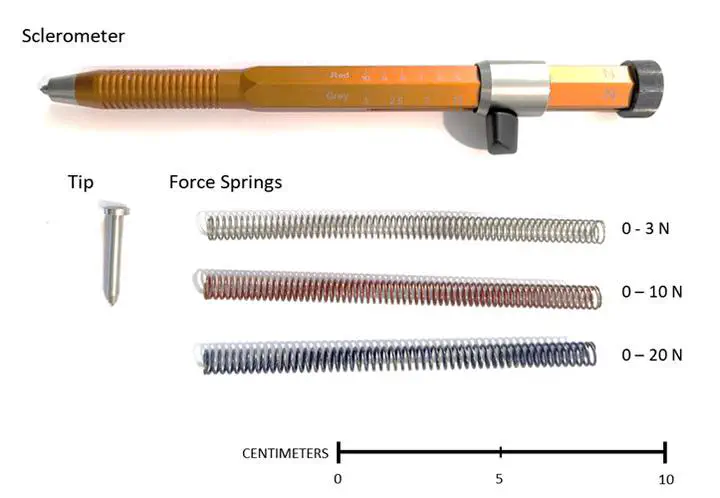The use of an analog sclerometer to estimate stability of hard substrates supporting coastal marine communities
 Image credit: Cramer, unpublished
Image credit: Cramer, unpublished
Abstract
In the marine environment, benthic organisms use a suite of chemical, physical and biological signals to determine where to settle. One of these signals may be the strength of the rock surface, but to date it is unclear how to measure rock strength in marine substrates. Previous efforts involve measurements of rock compressive strength, which relates to the hardness of the interior rock and does not reflect how organisms interact with the rock surface. Here we present a method for estimating the surface strength, or friability, of marine rocks in the field. We use an analog sclerometer to scratch the surface of marine rocks at predetermined force levels across 38 intertidal sites. We found that average friability measurements reflected published rock strengths based on rock type, while also capturing differences in surface weathering. The tool was effective at measuring surface rock strength on soft rocks, such as mudstone, and hard rocks, like granite. The ability to measure the strength of surfaces represents a new approach for benthic marine research, with strong potential for work on subtidal and/or organic substrates.
Project under revision